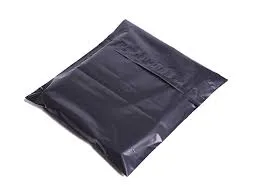Sustainable Food Storage Solutions for an Eco-Friendly Kitchen
Environmentally Friendly Food Storage Bags A Sustainable Choice for Your Kitchen
In recent years, the growing awareness surrounding environmental issues has pushed many individuals and families to rethink their daily habits. One area that has come under scrutiny is food storage. Traditional plastic bags, while convenient, pose significant risks to our planet due to their non-biodegradable nature. As a response to this pressing issue, environmentally friendly food storage bags have emerged as a sustainable solution, allowing us to store our food responsibly while reducing our environmental footprint.
The Problem with Conventional Plastic Bags
Plastic pollution is a major environmental crisis. Single-use plastic bags, which are commonly used for food storage, contribute to the staggering amount of plastic waste that ends up in landfills and oceans. According to the World Economic Forum, by 2050, there could be more plastic in the oceans than fish by weight if current trends continue. Conventional plastic bags take hundreds of years to decompose. Even when they do break down, they often turn into microplastics, which can harm marine life, contaminate water sources, and ultimately end up in our food chain.
Given the severity of this issue, many consumers are actively seeking alternatives that are both effective in food storage and environmentally conscious.
What Are Environmentally Friendly Food Storage Bags?
Environmentally friendly food storage bags are typically made from biodegradable or compostable materials. Unlike conventional plastic, these bags decompose naturally over time, reducing their impact on the environment. Common materials used in eco-friendly bags include
1. PLA (Polylactic Acid) Made from renewable resources like corn starch or sugarcane, PLA bags are compostable and break down in industrial composting facilities.
2. Biodegradable Plastics These plastics are engineered to break down more quickly than traditional plastics. They contain additives that promote degradation when exposed to natural environmental conditions.
3. Fabric Bags Reusable fabric bags made from materials like cotton, hemp, or other organic fibers are another excellent option. These are not only durable but can also be washed and reused multiple times, further reducing waste.
4. Glass Storage Containers While not a bag, glass containers with lids are an increasingly popular option for food storage. They are reusable, recyclable, and free of harmful chemicals that can leach into food.
environmentally friendly food storage bags

Benefits of Using Eco-Friendly Food Storage Bags
1. Reduction of Plastic Waste By opting for eco-friendly bags, consumers can significantly contribute to reducing the plastic waste problem. Every small change adds up, and making a habit of using these bags can lead to substantial positive impacts on the environment.
2. Healthier Food Storage Many conventional plastics can release harmful chemicals into food, especially when exposed to heat. Eco-friendly alternatives are typically free from these harmful substances, offering a safer option for food storage.
3. Compostable and Biodegradable Options Many eco-friendly food storage bags can be composted at home or through municipal facilities, enriching the soil instead of polluting the environment.
4. Durability and Versatility Many environmentally friendly bags are designed to be durable and reusable, making them a practical choice for various food storage needs, whether it's snacks, sandwiches, or leftovers.
5. Supporting Sustainable Practices Purchasing eco-friendly products often supports companies that prioritize sustainable practices, contributing to a market shift toward environmentally conscious manufacturing methods.
Making the Switch
Transitioning to environmentally friendly food storage bags is a straightforward and impactful change. Start by replacing a few traditional plastic bags with eco-friendly options as you run out. Look for bags labeled as biodegradable or compostable, ensuring they meet stringent environmental standards.
Additionally, consider combining these bags with other sustainable practices in your kitchen. For instance, using glass containers for leftovers, investing in reusable beeswax wraps, and buying in bulk can all help minimize waste.
In conclusion, the choice to use environmentally friendly food storage bags is a small yet powerful step towards a more sustainable lifestyle. By making conscious choices in our food storage habits, we can collectively reduce plastic pollution and foster a healthier planet for future generations. Embrace this change today and be part of the solution!
-
The Best Uses for Small Trash Bags in Daily LifeNewsJul.01,2025
-
Stylish Reusable Grocery Bags TrendsNewsJul.01,2025
-
Shipping Advantages of Using Bubble Envelopes BulkNewsJul.01,2025
-
How Compostable Mailing Bags Reduce Environmental ImpactNewsJul.01,2025
-
Environmentally - Friendly Bulk Poly MailersNewsJul.01,2025
-
Eco Friendly Custom Laminated Tote BagsNewsJul.01,2025
-
Have the freedom of customizing your custom mailers any way you want! Our dedicated packaging support will help deliver you the mailing experience you need to elevate your shipping experience to the next level! Start making a strong impression on your customers and stand out from your competitors! -
LIYA uses high quality raw materials which directly purchased from large enterprises domestic and overseas such as PetroChina, Sinopec, Sabic, Equate, ExxonMobil, Dow Chemical, Total, and Borouge, ensuring the price advantage and quality of the raw materials. -
LIYA uses high quality raw materials which directly purchased from large enterprises domestic and overseas such as PetroChina, Sinopec, Sabic, Equate, ExxonMobil, Dow Chemical, Total, and Borouge, ensuring the price advantage and quality of the raw materials.





